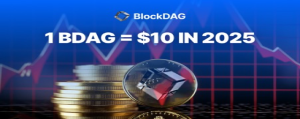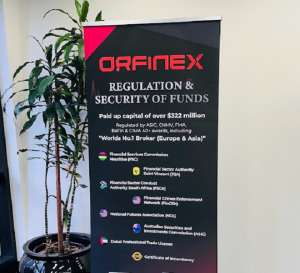Shenzhen, gateway to the south. China’s burgeoning IB network on Hong Kong’s doorstep explained
China has long since been the golden egg of the FX brokerage business, and most certainly the bulls eye of this incredibly valuable target being the ability to accrue a high quality IB network on the mainland. Reporting from Shenzhen today, FinanceFeeds conducted a detailed investigation into introducing brokers in China’s Guangdong province, in the […]

China has long since been the golden egg of the FX brokerage business, and most certainly the bulls eye of this incredibly valuable target being the ability to accrue a high quality IB network on the mainland.
Reporting from Shenzhen today, FinanceFeeds conducted a detailed investigation into introducing brokers in China’s Guangdong province, in the city which is billed to be the most rapidly advancing urban metropolis in modern China.
What do the IBs in Shenzhen want from their broker?
The million dollar question. Or in this case, the $7 per million question.
Shenzhen is home to approximately 12 large introducing brokers, some of which perform the role of solely sending funds directly to overseas FX companies, and others which also manage client portfolios. Additionally, there is a network of permanently employed, salaried sales managers who operate in a similar vane to an IB but are direct employees of overseas firms.
Gone are the days when Chinese IBs were only interested in driving a hard bargain and then splitting the proceeds between themselves and their sub-IBs. Today, with the Chinese government’s omnipresent all-seeing eye having put a stop to many bank transfers to FX firms and in the aftermath of western firms which ran a profit and loss model for their IBs who subsequently had to deal with various angry clients on their doorstep, caution and trepidation is top of the agenda.
Of the seven IBs that were visited by FinanceFeeds today in Shenzhen, all of which had offices with headcounts between 20 and 100, the top priorities were:
a. A London base with FCA regulation
b. Public listing on the London Stock Exchange (this website is open in China, therefore the entire operations of the company can be viewed)
c. Establishment in Britain for more than 15 years.
These key credentials have outstripped the bargaining model and by operating with a publicly listed firm, IBs can be sure that their own commissions would be paid, and that their client money would be secure, as public companies have a duty to their shareholders which is not restricted to corporate performance, but also to toeing the legal and ethical line.
Interestingly, there is a growing number of English-speaking salaried staff working for British and Cypriot retail FX companies in Shenzhen. They are paid between 9,000 to 10,000 RMB (approximately $1,418 to $1,576) per month as a base salary, and then earn a lot-based commission of between 50 cents and 75 cents per lot depending on the company, which equates to $5 to $7.50 per million on a lot size of $100,000.
Not bad at all, however the work is very demanding and a sales team often has to be managed, for which the salaried manager is responsible and must remunerate from his commissions.
As far as IB commissions are concerned, the average Shenzhen IB with a sales team and an annual deposit of $8 million and receives an annual IB commission of approximately $1 million, which performs purely IB business and does not manage client funds, would seek a total spread of 1.8 pips on cable, with a hefty 1.2 pips going to the IB, leaving the FX broker which handles the order flow with not only all of the administrative issues required to look after a Chinese IB, but also only 0.6 pips spread.
Here, volume is the name of the game, however for an FX dealer, that is a very small part of a very large pie, and with bank transfers off the agenda, a payment gateway which supports China UnionPay and can allow international processing is essential.
Who exactly are you?
In China, branding is everything and IBs are becoming increasingly keen to offer top brands to their customers, and are increasingly moving toward offering branded applications, website logos and presentation folders to visiting prospective clients adorned with the name of well known western firms.
One particularly interesting example actually had the FCA logo on it, with the IB insisting that this is absolutely legal as long as the IB marks his business out as an educational establishment or information resource rather than a branch office of a western firm, and does not accept funds directly from the client, instead directing a customer to operate directly with the FX dealer.
In order to be able to attract the attention of certain IBs here in Shenzhen, brokers need to figure out a method of offering branded services which end users will recognize as reputable, whilst complying with Chinese government regulations on the matter.
What is being traded?
Shenzhen is a city of 10.6 million people, and has grown tremendously within the last 5 years. A walk around the downtown or any inner suburb is an insight into immaculate Chinese precision, manicured gardens, beautiful boulevards and impressive, high-tech glass towers. It is home to a very highly educated population and is only 40 minutes by train from Hong Kong.
Therefore, here in Shenzhen, traders know what they want and as a result brokers must offer a multi-asset platform which caters for the increasing popularity of precious metals trading, commodities including crude oil and, remarkably, the A50 Chinese index. Spot FX only accounts for approximately 50% of all order flow in this region.
The legacy of the profit share model
The dark old days of remunerating sales staff on net deposit and client loss are a distant memory for most firms in the West these days, however some ambitious Chinese IBs and sales people lament the passing of such a model. One particular sales person explained that he is not concerned as to how an FX broker process order flow, and that it is of no concequence whether the orders are executed on an A book or B book basis as long as the company is reputable and has enough presence and customer support.
He actually explained that whilst the vast majority of firms now pay on revenues or spread, the old net deposit business was well received in China – a shocking sound to Western ears in post-regulatory retail FX.
In for the long haul
Execution model is now of great importance. IBs must be able to offer their clients fast execution which allows EAs (expert advisors) to trade automatically with no errors or slippage, because automated trading via EAs is still very prominent in China, with many traders developing their own EAs themselves.
Saturation of the market by penetration by competing firms in the provinces is nowhere near the levels of Hong Kong or Shanghai, however competition is mostly as a result of brokerages having to offer very aggressive spread deals to their IBs, all of whom are very clued up and ready to negotiate when approached.
Indeed, so confident are many IBs that the West needs them, that they actually now seek investment from Western firms in their IB business, be it to expand their presence in China, or more importantly, to cement a deal in order that an agreement is not just signed and forgotten about after a handful of clients have been placed. Long term co-operation has replaced fly-by-night introducers, and therefore a commitment on both sides is becoming increasingly commonplace.
Featured Image: Shenzhen’s famous KK100 Tower









